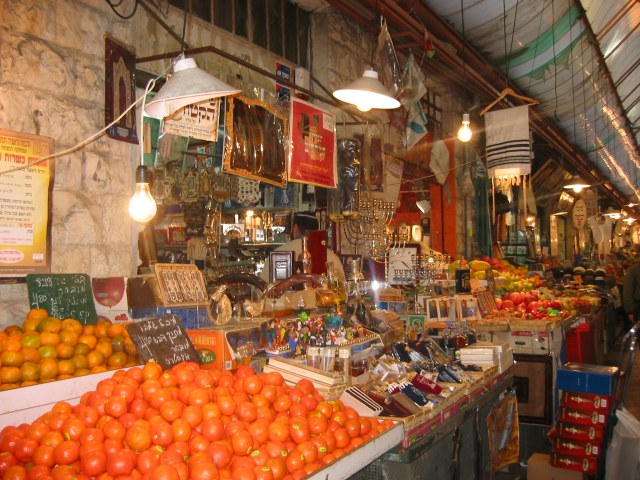|
Shmuel Pinchasi
Rabbi Shmuel Pinchasi is the rabbi of Mahane Yehuda Market neighborhood in Jerusalem, Israel and a Dayan in Beit Din Halichot Olam of Darchei David Beit Midrash. He is also the author of a number of Seforim and the president of Mishkan Levi Institution. His sons are also accomplished authors; his son Moshe published the populaTorat HaYeshiva relevant laws for students studying in yeshiva A yeshiva (; he, ישיבה, , sitting; pl. , or ) is a traditional Jewish educational institution focused on the study of Rabbinic literature, primarily the Talmud and halacha (Jewish law), while Torah and Jewish philosophy are s .... Works * Imrei Shefer, Hagot uMachshavah (6. vols) * Imrei Shefer, Pirkei Avot (3 vols.) excellent expounding of Mishnayot veDaber Davar on the laws of Amirah LeAkum on Shabbat Chaim vaChesed a popular work on the laws of mourning * Minchat Shmuel (3 vols.), responsa * Pirkei Chinuch * Kuntress vekhol HaChaim References External links Le ... [...More Info...] [...Related Items...] OR: [Wikipedia] [Google] [Baidu] |
Rosh Kollel
A kollel ( he, כולל, , , a "gathering" or "collection" f scholars is an institute for full-time, advanced study of the Talmud and rabbinic literature. Like a yeshiva, a kollel features shiurim (lectures) and learning ''sedarim'' (sessions); unlike most yeshivot, the student body of a kollel typically consists mostly of married men. A kollel generally pays a regular monthly stipend to its members. History Original sense Originally, the word was used in the sense of "community". Each group of European Jews settling in Israel established their own community with their own support system. Each community was referred to as the "kollel of " to identify the specific community of the Old Yishuv. The overwhelming majority of these Jews were scholars who left their homelands to devote themselves to study Torah and serve God for the rest of their lives. The kollel was the umbrella organization for all their needs. The first examples were Kolel Perushim (students of the Vilna Gaon who ... [...More Info...] [...Related Items...] OR: [Wikipedia] [Google] [Baidu] |
Dayan (rabbinic Judge)
A beit din ( he, בית דין, Bet Din, house of judgment, , Ashkenazic: ''beis din'', plural: batei din) is a rabbinical court of Judaism. In ancient times, it was the building block of the legal system in the Biblical Land of Israel. Today, it is invested with legal powers in a number of religious matters (''din Torah'', "matter of litigation", plural ''dinei Torah'') both in Israel and in Jewish communities in the Diaspora, where its judgments hold varying degrees of authority (depending upon the jurisdiction and subject matter) in matters specifically related to Jewish religious life. History Rabbinical commentators point out that the first suggestion in the Torah that the ruler divest his legal powers and delegate his power of judgment to lower courts was made by Jethro to Moses (Exodus ). This situation was formalised later when God gave the explicit command to "establish judges and officers in your gates" (Deuteronomy ). There were three types of courts (Mishnah, tract ... [...More Info...] [...Related Items...] OR: [Wikipedia] [Google] [Baidu] |
Israeli Mizrahi Jews
Israeli may refer to: * Something of, from, or related to the State of Israel * Israelis, citizens or permanent residents of the State of Israel * Modern Hebrew, a language * ''Israeli'' (newspaper), published from 2006 to 2008 * Guni Israeli (born 1984), Israeli basketball player See also * Israelites, the ancient people of the Land of Israel * List of Israelis Israelis ( he, ישראלים ''Yiśraʾelim'') are the citizens or permanent residents of the State of Israel, a multiethnic state populated by people of different ethnic backgrounds. The largest ethnic groups in Israel are Jews (75%), foll ... {{disambiguation Language and nationality disambiguation pages ... [...More Info...] [...Related Items...] OR: [Wikipedia] [Google] [Baidu] |
Living People
Related categories * :Year of birth missing (living people) / :Year of birth unknown * :Date of birth missing (living people) / :Date of birth unknown * :Place of birth missing (living people) / :Place of birth unknown * :Year of death missing / :Year of death unknown * :Date of death missing / :Date of death unknown * :Place of death missing / :Place of death unknown * :Missing middle or first names See also * :Dead people * :Template:L, which generates this category or death years, and birth year and sort keys. : {{DEFAULTSORT:Living people 21st-century people People by status ... [...More Info...] [...Related Items...] OR: [Wikipedia] [Google] [Baidu] |
21st-century Rabbis In Jerusalem
The 1st century was the century spanning AD 1 ( I) through AD 100 ( C) according to the Julian calendar. It is often written as the or to distinguish it from the 1st century BC (or BCE) which preceded it. The 1st century is considered part of the Classical era, epoch, or historical period. The 1st century also saw the appearance of Christianity. During this period, Europe, North Africa and the Near East fell under increasing domination by the Roman Empire, which continued expanding, most notably conquering Britain under the emperor Claudius (AD 43). The reforms introduced by Augustus during his long reign stabilized the empire after the turmoil of the previous century's civil wars. Later in the century the Julio-Claudian dynasty, which had been founded by Augustus, came to an end with the suicide of Nero in AD 68. There followed the famous Year of Four Emperors, a brief period of civil war and instability, which was finally brought to an end by Vespasian, ninth Roman emperor, ... [...More Info...] [...Related Items...] OR: [Wikipedia] [Google] [Baidu] |
Yeshiva
A yeshiva (; he, ישיבה, , sitting; pl. , or ) is a traditional Jewish educational institution focused on the study of Rabbinic literature, primarily the Talmud and halacha (Jewish law), while Torah and Jewish philosophy are studied in parallel. The studying is usually done through daily ''shiurim'' (lectures or classes) as well as in study pairs called '' chavrusas'' (Aramaic for 'friendship' or 'companionship'). ''Chavrusa''-style learning is one of the unique features of the yeshiva. In the United States and Israel, different levels of yeshiva education have different names. In the United States, elementary-school students enroll in a ''cheder'', post- bar mitzvah-age students learn in a ''metivta'', and undergraduate-level students learn in a ''beit midrash'' or ''yeshiva gedola'' ( he, ישיבה גדולה, , large yeshiva' or 'great yeshiva). In Israel, elementary-school students enroll in a ''Talmud Torah'' or ''cheder'', post-bar mitzvah-age students l ... [...More Info...] [...Related Items...] OR: [Wikipedia] [Google] [Baidu] |
Seforim
''Sifrei Kodesh'' ( he, ספרי קודש, , Holy books), commonly referred to as ''sefarim'' ( he, ספרים, , books), or in its singular form, ''sefer'', are books of Jewish religious literature and are viewed by religious Jews as sacred. These are generally works of Torah literature, i.e. Tanakh and all works that expound on it, including the Mishnah, Midrash, Talmud, and all works of ''halakha'', Musar, Hasidism, Kabbalah, or ''machshavah'' ("Jewish Thought"). Historically, ''sifrei kodesh'' were generally written in Hebrew with some in Judeo-Aramaic or Arabic, although in recent years, thousands of titles in other languages, most notably English, were published. An alternative spelling for 'sefarim' is ''seforim''. Terms The term ''Sifrei Kodesh'' is Hebrew for "Holy Books", and includes all books that are considered holy in Rabbinic Judaism. This includes all Torah literature as well as Jewish prayer books. Among Orthodox Jews the word ''sefer'' (plural ''s'fari ... [...More Info...] [...Related Items...] OR: [Wikipedia] [Google] [Baidu] |
Mahane Yehuda Market
Mahane Yehuda Market ( he, שוק מחנה יהודה, ''Shuk Mahane Yehuda''), often referred to as "The Shuk" ( he, השוק, HaShuq), is a marketplace (originally open-air, but now partially covered) in Jerusalem. Popular with locals and tourists alike, the market's more than 250 vendors sell fresh fruits and vegetables; baked goods; fish, meat and cheeses; nuts, seeds, and spices; wines and liquors; clothing and shoes; and housewares, textiles, and Judaica. In and around the market are falafel, shawarma, kibbeh, kebab, shashlik, kanafeh, baklava, halva, zalabiya and Jerusalem mixed grill stands, juice bars, cafes, and restaurants. The color and bustle of the marketplace is accentuated by vendors who call out their prices to passersby. On Thursdays and Fridays, the marketplace is filled with shoppers stocking up for Shabbat, until the Friday afternoon sounding of the bugle that signifies the market will close for the Sabbath. In recent years, the 'shuk' has emerged as anothe ... [...More Info...] [...Related Items...] OR: [Wikipedia] [Google] [Baidu] |
Beth Din
A beit din ( he, בית דין, Bet Din, house of judgment, , Ashkenazic: ''beis din'', plural: batei din) is a rabbinical court of Judaism. In ancient times, it was the building block of the legal system in the Biblical Land of Israel. Today, it is invested with legal powers in a number of religious matters (''din Torah'', "matter of litigation", plural ''dinei Torah'') both in Israel and in Jewish communities in the Diaspora, where its judgments hold varying degrees of authority (depending upon the jurisdiction and subject matter) in matters specifically related to Jewish religious life. History Rabbinical commentators point out that the first suggestion in the Torah that the ruler divest his legal powers and delegate his power of judgment to lower courts was made by Jethro to Moses (Exodus ). This situation was formalised later when God gave the explicit command to "establish judges and officers in your gates" ( Deuteronomy ). There were three types of courts (Mishnah, trac ... [...More Info...] [...Related Items...] OR: [Wikipedia] [Google] [Baidu] |
Halakha
''Halakha'' (; he, הֲלָכָה, ), also transliterated as ''halacha'', ''halakhah'', and ''halocho'' ( ), is the collective body of Jewish religious laws which is derived from the written and Oral Torah. Halakha is based on biblical commandments ('' mitzvot''), subsequent Talmudic and rabbinic laws, and the customs and traditions which were compiled in the many books such as the ''Shulchan Aruch''. ''Halakha'' is often translated as "Jewish law", although a more literal translation of it might be "the way to behave" or "the way of walking". The word is derived from the root which means "to behave" (also "to go" or "to walk"). ''Halakha'' not only guides religious practices and beliefs, it also guides numerous aspects of day-to-day life. Historically, in the Jewish diaspora, ''halakha'' served many Jewish communities as an enforceable avenue of law – both civil and religious, since no differentiation of them exists in classical Judaism. Since the Jewish Enlightenment (''Hask ... [...More Info...] [...Related Items...] OR: [Wikipedia] [Google] [Baidu] |
Talmud
The Talmud (; he, , Talmūḏ) is the central text of Rabbinic Judaism and the primary source of Jewish religious law (''halakha'') and Jewish theology. Until the advent of modernity, in nearly all Jewish communities, the Talmud was the centerpiece of Jewish cultural life and was foundational to "all Jewish thought and aspirations", serving also as "the guide for the daily life" of Jews. The term ''Talmud'' normally refers to the collection of writings named specifically the Babylonian Talmud (), although there is also an earlier collection known as the Jerusalem Talmud (). It may also traditionally be called (), a Hebrew abbreviation of , or the "six orders" of the Mishnah. The Talmud has two components: the Mishnah (, 200 CE), a written compendium of the Oral Torah; and the Gemara (, 500 CE), an elucidation of the Mishnah and related Tannaitic writings that often ventures onto other subjects and expounds broadly on the Hebrew Bible. The term "Talmud" may refer to eith ... [...More Info...] [...Related Items...] OR: [Wikipedia] [Google] [Baidu] |





